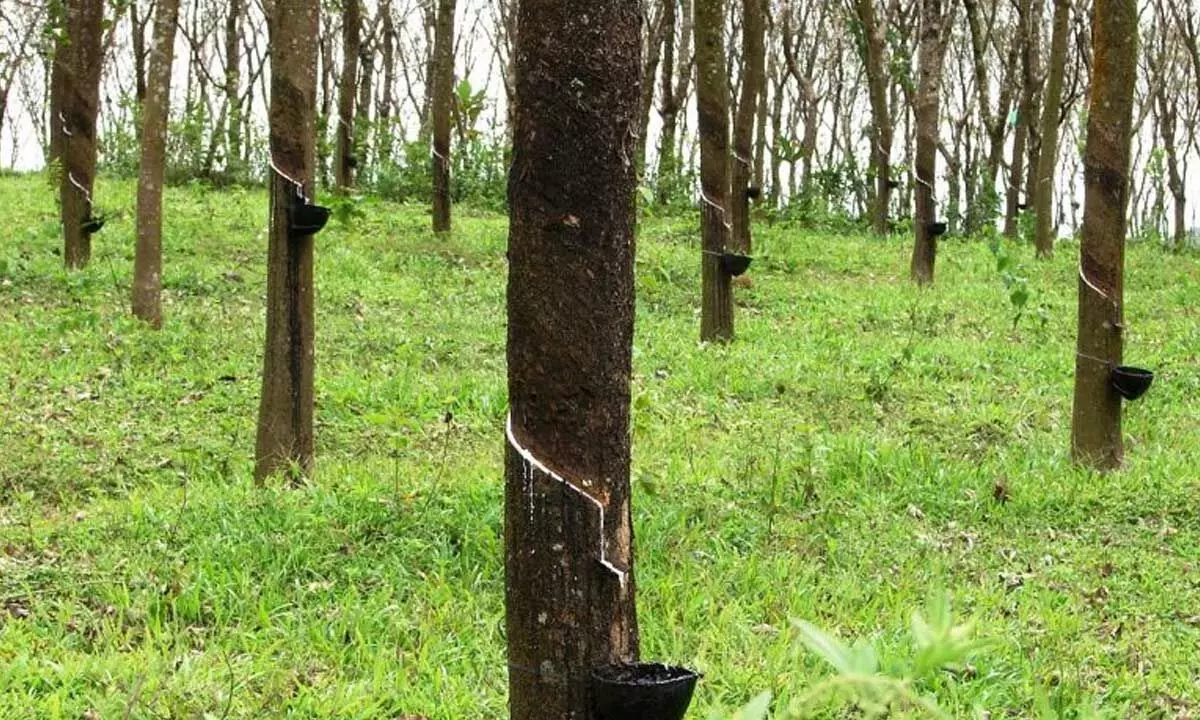Rubber growers of North-East have a lesson for other States
Industry body-Automotive Tyre Manufactures Association (ATMA) will now invest Rs1,100 crore to undertake rubber plantation in additional 2,00,000 hectares of land in north eastern India in the next five years.
image for illustrative purpose

Industry body-Automotive Tyre Manufactures Association (ATMA) will now invest Rs1,100 crore to undertake rubber plantation in additional 2,00,000 hectares of land in north eastern India in the next five years. Precisely the same time, Rubber, Chemical & Petrochemical Skill Development Council (RCPSDC) in association with the state government-run the Tripura OBC Cooperative Development Corporation Ltd, has undertaken a project of skill training in rubber tapping and processing besides the creation of necessary infrastructure so as to improve the livelihood of the rubber growers belonging to the OBC community. RCPSDC promises to give training for rain guarding which will result in the increment of productivity of latex up to 1500kg/hectare from 1200kg/hectare leading to 16 per cent increase in monthly incomes of the growers.
Significantly, Tripura is the second largest natural rubber producing state in the country after Kerala with over 85,038 hectares of land under plantation, producing 74,139 tonne of rubber annually. Over 1.50 lakh families are directly and indirectly associated with natural rubber cultivation in Tripura. Natural rubber is cultivated in 16 states in India. With over 6,00,000 hectares, Kerala tops rubber cultivation, followed by Tripura with over 85,038 hectares under plantation. Other major natural rubber producers are Karnataka, Tamil Nadu, Assam and other north-eastern states. With skill development and handholding support, it is expected that the efficiency of the Rubber Tappers shall improve with better quality yield and increase in production volumes. Better market linkage as provisioned in the project shall improve the livelihoods of the rubber growers particularly the women rubber growers leading to significant socio-economic improvement. Lack of properly trained tappers, absence of rain-guarding of rubber plants, lack of focus on quality and lack of Industry linkages have stifled the growth of the Natural Rubber sector in Tripura.
Ironically, large potential in Tripura is untapped both in terms of production and quality of rubber. The state produces less than 1200 Kg per hectare of rubber planted area as compared to the national average of 1500 kg per hectare. At present, only 30-40 per cent of the rubber produced in Tripura is in the form of quality rubber sheet which matches the requirements of the industry. A large percentage of rubber produced is a low quality 'lot' rubber or 'ungraded' rubber. With skills training and support to the rubber growers, 60-70 per cent of the rubber produced can be graded sheet rubber – mostly RSS 3 and RSS 4. Besides, every year approximately 50-60 days of production are lost due to the non-availability of rain guarding (20 per cent of the tapping days in a year).
Skilful tapping (without harming the tree) is expected to ensure yield from rubber trees for a prolonged period of 30 years which lasts only 12-18 years if done unskilfully. Moreover, through scientific latex processing growers can upgrade their rubber sheet quality up to RSS4 fetching them an extra Rs 40/kg. So, as a project outcome, the overall increase in monthly incomes of the rubber growers is estimated at 32 per cent. Would other states take a tip or two from the small, picturesque north-eastern state?

